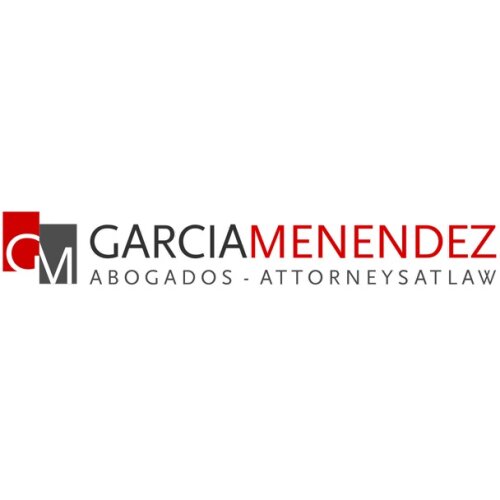Best Real Estate Contracts and Negotiations Lawyers in Argentina
Share your needs with us, get contacted by law firms.
Free. Takes 2 min.
Free Guide to Hiring a Real Estate Lawyer
Or refine your search by selecting a city:
List of the best lawyers in Argentina

About Real Estate Contracts and Negotiations
Real estate contracts are legal agreements related to the purchase, sale, lease, or exchange of real estate property. These contracts outline the rights and duties of the parties involved and are foundational to ensuring a clear understanding between buyers, sellers, landlords, and tenants. In Argentina, the negotiations surrounding these contracts require a nuanced understanding of both local and national legal frameworks to ensure that all transactions are legally binding and enforceable.
Law in Argentina: A Brief Overview of Real Estate Contracts and Negotiations
In Argentina, real estate law is predominantly governed by the Argentine Civil and Commercial Code. Real estate transactions often involve contracts that must adhere to specific legal requirements to be valid. These include sale contracts, lease agreements, and mortgage contracts, among others. The negotiation process can be intricate, requiring careful consideration of terms, legal formalities, and due diligence to protect the interests of the involved parties.
Why You May Need a Lawyer
There are several situations where individuals might require legal assistance with real estate contracts and negotiations in Argentina:
- Property Purchase or Sale: Legal guidance ensures the transaction complies with all legal requirements and helps mitigate risks such as encumbrances on the property.
- Lease Agreements: Lawyers help draft clear and enforceable lease terms that protect both landlords and tenants.
- Dispute Resolution: Experienced attorneys can help resolve disputes between parties, whether through negotiation or litigation.
- Complex Transactions: Legal expertise is crucial for navigating complex transactions, including those involving multiple stakeholders or international parties.
- Contract Review: Ensuring that all contract provisions are in the client's best interest and comply with local laws.
Local Laws Overview
Some key aspects of local laws relevant to real estate contracts and negotiations in Argentina include:
- Contract Requirements: Contracts must be in writing and include essential information such as the identities of the parties, property description, price, and terms of payment.
- Notarization: Real estate transactions generally require notarization by a public notary, which provides an additional layer of legal validation.
- Stamp Duties and Taxes: Various taxes and duties, including stamp duty, must be considered in the financial aspect of real estate transactions.
- Property Registration: Properties must be registered with the Argentine Land Registry to ensure ownership rights are publicly recognized.
- Consumer Protection: Laws provide certain protections for buyers, especially in off-plan transactions or real estate purchases from developers.
Frequently Asked Questions
What are the essential components of a real estate contract in Argentina?
A valid contract should include the identities of the parties, a detailed property description, the agreed price, payment terms, and any conditions or contingencies.
Is notarization mandatory for real estate contracts in Argentina?
Yes, notarization by a public notary is typically required to validate and formalize real estate transactions.
How is property ownership transferred?
Ownership is transferred through a public deed, prepared and certified by a notary, and thereafter registered with the local Land Registry Office.
Who pays for closing costs in Argentina?
Closing costs can be negotiated between the buyer and seller, but typically include notary fees, registration fees, and proportional taxes.
What is the role of a real estate agent in Argentina?
Real estate agents facilitate the buying and selling process by providing market knowledge, property listings, and assistance with negotiations and paperwork.
What taxes are involved in a real estate transaction?
Common taxes include the property transfer tax, VAT on new properties, and potential stamp duties, all of which depend on specific factors related to the transaction.
Can foreigners buy real estate in Argentina?
Yes, foreigners can purchase real estate in Argentina, though they must obtain a CDI (Código de Identificación) for tax purposes.
What happens if a party breaches a real estate contract?
The non-breaching party can typically seek remedies in court, such as specific performance or compensation for damages incurred.
Are there any special considerations for agricultural land transactions?
Yes, transactions involving rural lands may be subject to specific regulations and restrictions, particularly regarding foreign ownership.
Can a lease contract be terminated early?
Early termination can usually be done if both parties agree, or if stipulated terms for early termination in the contract are met.
Additional Resources
Those seeking further assistance or information regarding real estate contracts and negotiations in Argentina might find the following resources helpful:
- Argentine Colegio de Escribanos: Offers resources and guidance related to public notaries and deeds.
- Ministry of Justice and Human Rights: Provides information on legislative and regulatory frameworks.
- Real Estate Associations: Local associations often provide market insights and professional contact networks.
Next Steps
If you are considering a real estate transaction or require assistance with real estate contracts and negotiations in Argentina, follow these steps:
- Consult a Lawyer: Reach out to a lawyer specializing in real estate law to assess your specific situation.
- Conduct Due Diligence: Work with legal and real estate professionals to thoroughly investigate the property and transaction terms.
- Engage a Notary: Ensure all documents are properly drafted, reviewed, and notarized to comply with local laws.
- Review Costs and Taxes: Budget for all associated costs, including taxes, registration fees, and potential legal fees.
- Stay Informed: Keep abreast of any changes in property laws or market conditions that may affect your real estate transactions.
Lawzana helps you find the best lawyers and law firms in Argentina through a curated and pre-screened list of qualified legal professionals. Our platform offers rankings and detailed profiles of attorneys and law firms, allowing you to compare based on practice areas, including Real Estate Contracts and Negotiations, experience, and client feedback.
Each profile includes a description of the firm's areas of practice, client reviews, team members and partners, year of establishment, spoken languages, office locations, contact information, social media presence, and any published articles or resources. Most firms on our platform speak English and are experienced in both local and international legal matters.
Get a quote from top-rated law firms in Argentina — quickly, securely, and without unnecessary hassle.
Disclaimer:
The information provided on this page is for general informational purposes only and does not constitute legal advice. While we strive to ensure the accuracy and relevance of the content, legal information may change over time, and interpretations of the law can vary. You should always consult with a qualified legal professional for advice specific to your situation.
We disclaim all liability for actions taken or not taken based on the content of this page. If you believe any information is incorrect or outdated, please contact us, and we will review and update it where appropriate.
Browse real estate contracts and negotiations law firms by city in Argentina
Refine your search by selecting a city.















